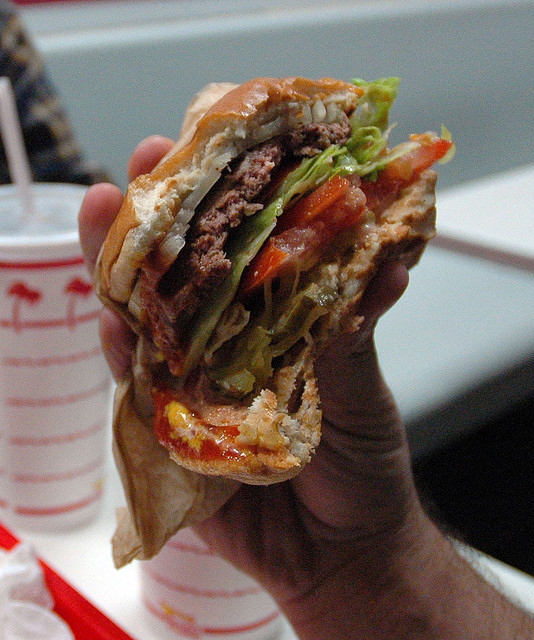What does how we eat say about us all?
I went to my sister’s house for Thanksgiving this year and while chatting about the meal, I asked her if she was a vegetarian. Her reply, “I’m not a vegetarian, but I don’t eat meat.” I thought this was a pretty perfect juxtaposition of eating habits and food identity.
How common it is to define ourselves through the food we eat? We are health nuts; I’m a coffee drinker, a vegan, a vegetarian, a carnivore, an omnivore, gluten free, lactose intolerant, a foodie.
Who’s not a foodie? Who doesn’t eat food?
Note the connotations of each of these words. Each time we define ourselves by what kind of food we eat, others invariably make assumptions about other choices we (may or may not) make. Each label can imply something else in addition to how we choose to make up ourselves chemically. Do all vegans really wear hemp clothes? Do dedicated carnivores also carry guns?
In this respect the choices we make about our food show up not just in our personal molecules, but also in how others invariably see us, and how we participate in, and shape, our culture.
It is common to decide what kind of food we want to eat by picking an ethnicity. “I could go for Chinese, Indian, Italian…” If we take a broader look at how we define a people culturally, food identity is right up there with art, economy, and political system. I remember Diversity Day in high school, where one of the main events was bringing in a dish that our families cooked as a cultural tradition. (Being generically white, and a vegetarian at the time, I felt I had little to offer—chocolate chip cookies?).
So, consider our collective food identity in the broader context of American (USA) culture. Even though we in the U.S. eat all different kinds of food from all over the world on a fairly regular basis, if we had to define ourselves by the food most connected to our culture, it would most likely be the burger and fries and more generally fast food.
This food is “made in America” and seen in the rest of the world as an American export.
To be fair, the burger and fries are a modernization of the meat and potatoes dish, which was a staple of an agrarian lifestyle of not-so-long-ago. And don’t forget the cheeseburger and milkshake—dairy industry represent!
In a closer consideration of fast food, our definitive cultural dish is served to us in five minutes, in the car or on-the-go, from largely unknown sources. These aspects of our food system show several other integral American cultural components: industrialization (of corn, cows, and kitchens), cars (via the drive-thru) and capitalist efficiency (max monetary profits/minimal monetary expense).
So in the U.S., you can see that our food continues to be intricately expressive of our cultural heritage. We see a host of other attitudes about food, also—it is a nuisance, it takes too long to prepare, it costs too much, it makes us fat. Our cultural opinion of food in general allows much of the food industry to capitalize on impatience and ignorance. In America, you can have what you want, when you want it. While these seem like moral judgments, well that’s part of culture too.
Examining our food identity necessarily means taking a look at the health of our nation, but also our values.
What direction can we move in, culturally, that would show up in our food?
Maybe cooking and eating together more: community.
Maybe considering the implications of our priorities: patience.
Maybe recognizing that while we define ourselves by our culture, we also make up the culture that defines us: self-examination.
The take away of this post might be “stop eating fast food,” but I also intend to for you, dear reader, to understand how you participate in our culture by how you choose your food.
Love elephant and want to go steady?
Sign up for our (curated) daily and weekly newsletters!
Apprentice Editor: Kimby Maxson/ Editor: Catherine Monkman
Photo: Flickr












Read 1 comment and reply